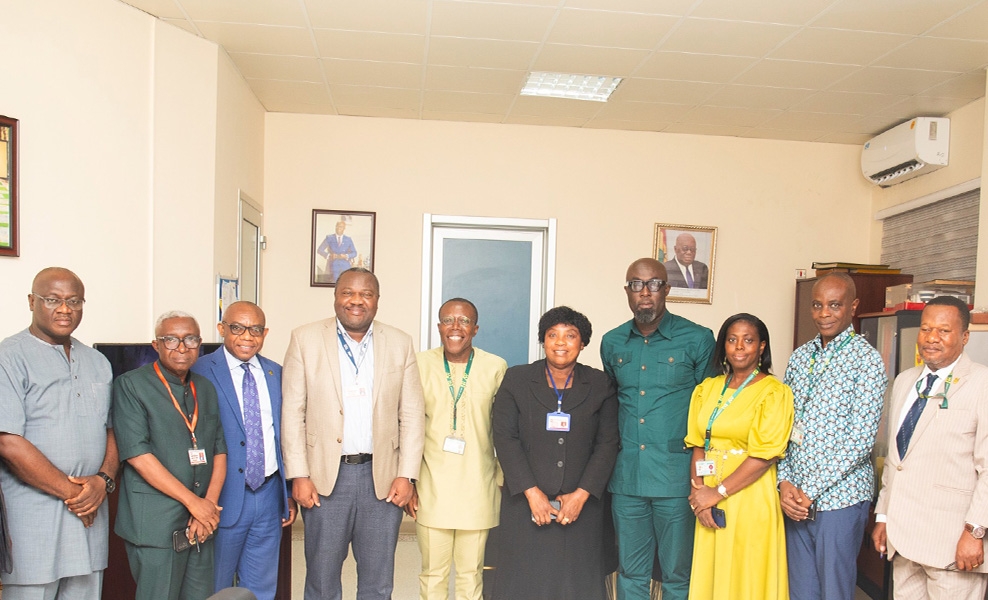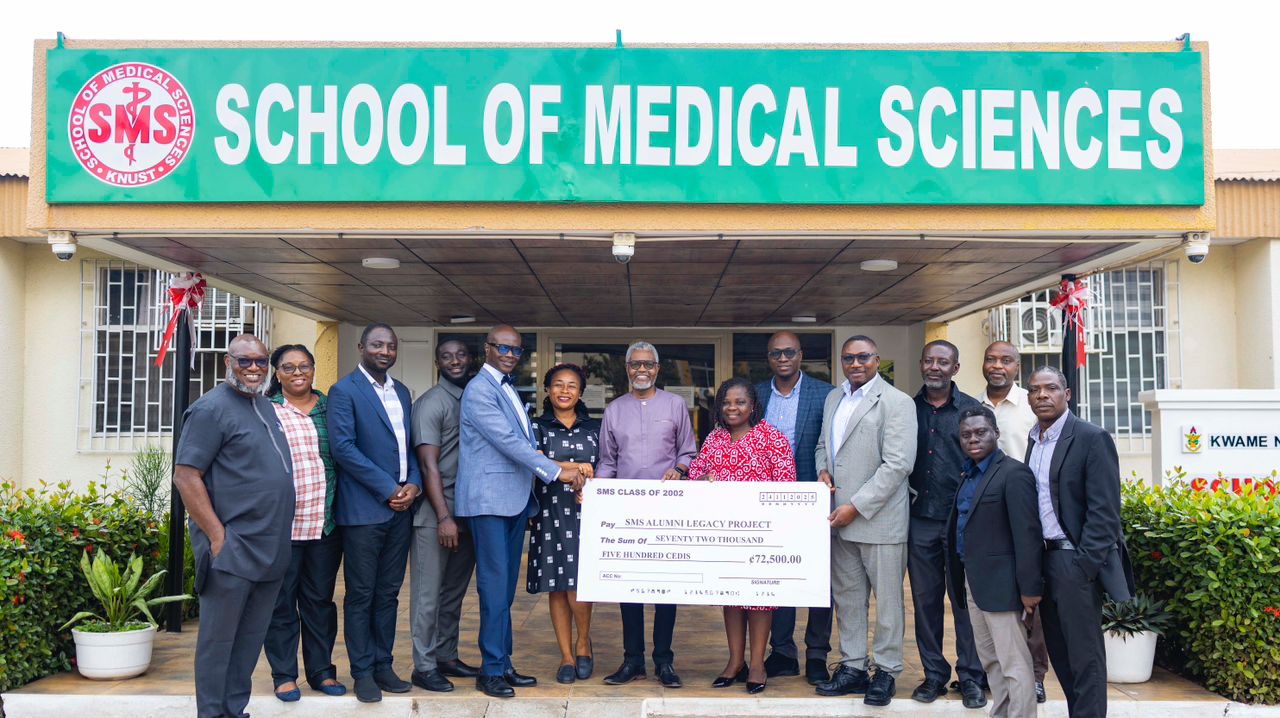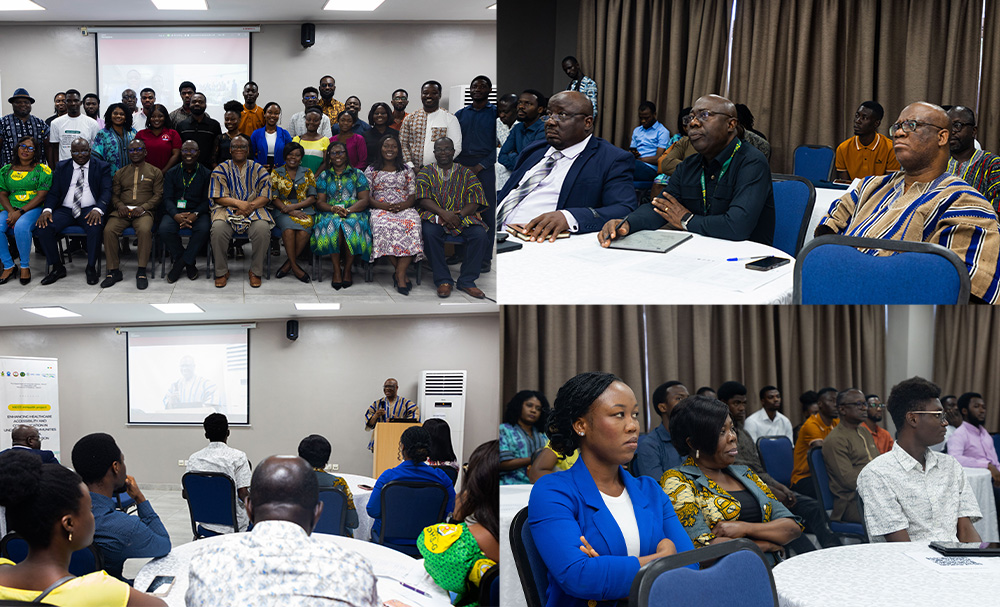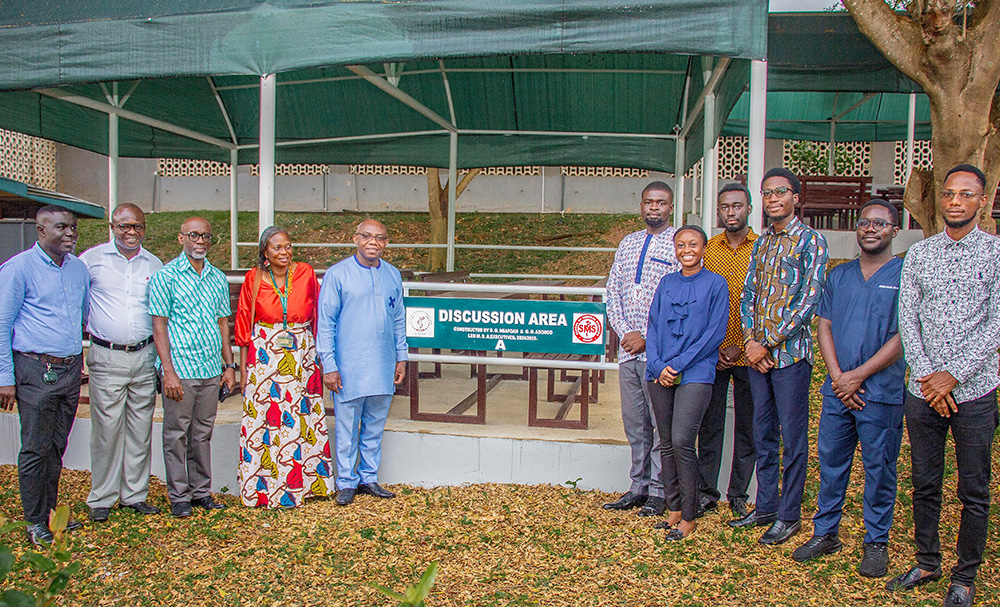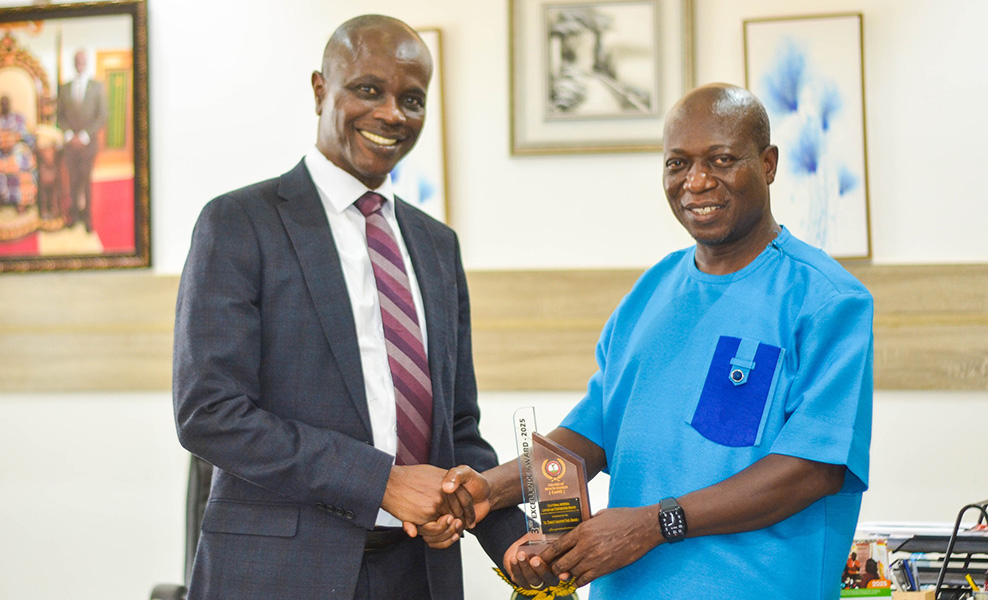The Pro Vice-Chancellor of the Kwame Nkrumah University of Science and Technology (KNUST), Prof. Ellis Owusu-Dabo, has stressed the need for the university and the Komfo Anokye Teaching Hospital (KATH) to deepen their collaboration to help find more innovative ways of bridging the huge access gap in specialist healthcare services in the Ashanti Region.
He says the Ashanti Region, unlike Greater Accra, is extremely deprived when it comes to well-established specialist hospitals in spite of its huge population, and it behooved on the two most prestigious institutions in the region to work closer together to address this challenge.
Prof. Owusu-Dabo stated this when he led members of the KATH-KNUST Joint Standing Committee to pay a courtesy call on the Chief Executive Officer of KATH, Prof. Otchere Addai-Mensah. The committee was established by the authorities of the two institutions to help promote greater cooperation and provide a model platform for the prompt redress of issues affecting their relationship.
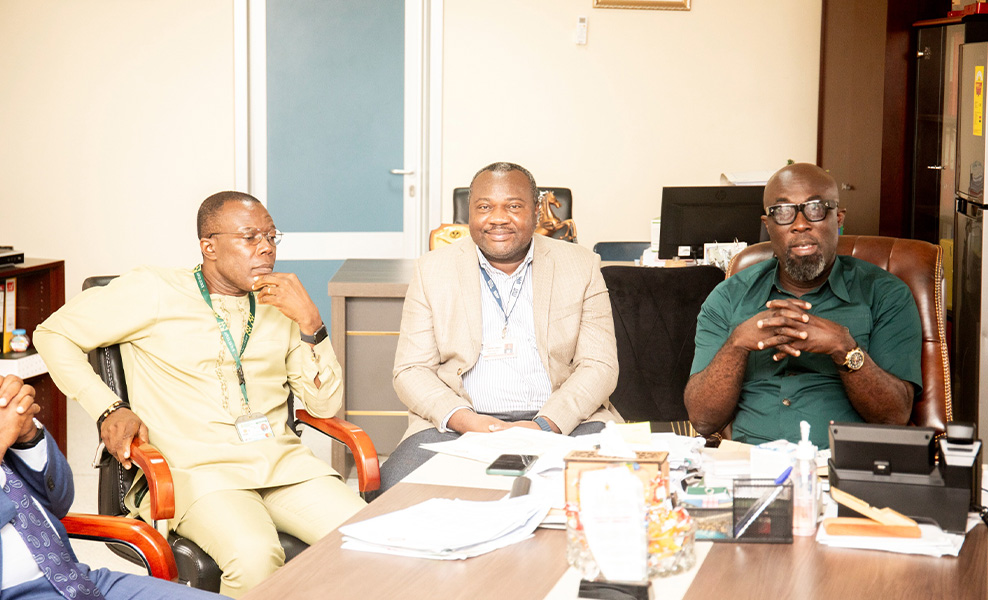
Prof. Owusu-Dabo, who is also the chairman of the committee, said it had been very instrumental in streamlining the relationship between the university and KATH since its establishment, as it had worked to promote the joint interests of the two institutions. He said it was critical that the two institutions continue to collaborate closely to meet the healthcare needs of the region and the country.
“We are the two most prestigious institutions in this part of the country and we have a duty to work together and strengthen each to deliver on our respective mandates in the areas of clinical training, specialist healthcare services and research,” he emphasised.
Prof. Owusu-Dabo also commended the CEO for his transformative leadership of the hospital since his assumption of office and urged him to continue to brave the odds to reposition KATH as the leading tertiary hospital in the sub-region.
Prof. Otchere Addai-Mensah acknowledged the existing symbiotic relationship between the two institutions, noting that KATH is a teaching hospital by virtue of its affiliation with KNUST while the successful accreditation and running of the university’s numerous clinical programmes were due in large part to the hospital’s expanse of clinical facilities for hands-on training.
He said since his appointment, he had strived to bridge the relationship between KATH and the clinical staff of the university who work at the hospital by taking a number of steps to ensure equity as his expectations from them were no lesser than those of the hospital.
Prof. Addai-Mensah expressed satisfaction with the renewed spirit of unity between the two institutions, adding that “as leaders in our respective fields, KATH and KNUST would continue to need each for years to come and, therefore, we ought to jointly leverage our strengths to improve the quality of healthcare care services to the public”.


